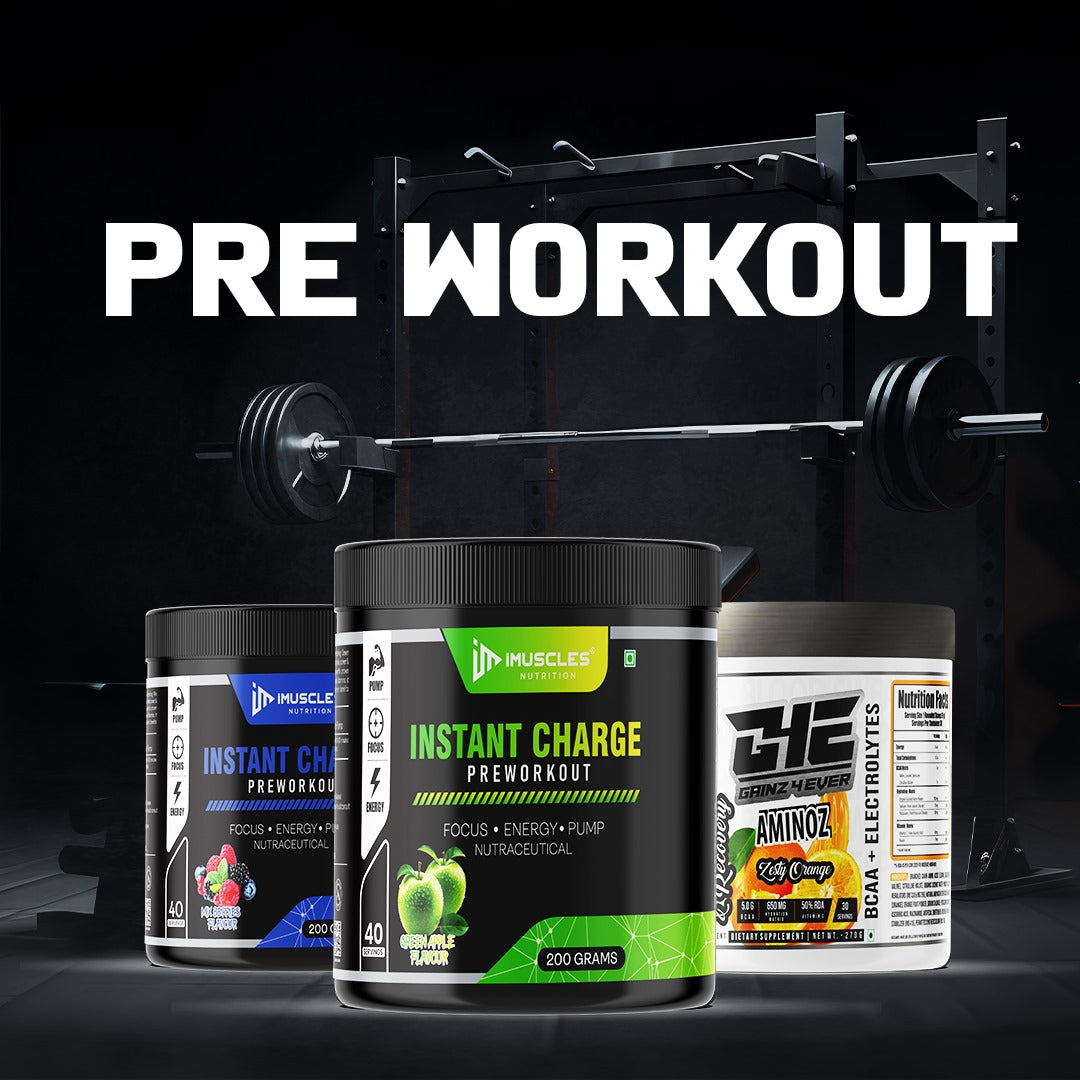
Best Foods for a Clean Bulk: Building Lean Muscle Without the Fat
iMuscles NutritionEmbarking on a clean bulk is a strategic approach to gaining muscle mass while minimizing fat accumulation. Unlike traditional bulking, which often involves consuming excess calories from any source, clean bulking emphasizes nutrient-dense foods that support muscle growth and overall health. Here's an in-depth guide to the best foods for a clean bulk, backed by research and expert recommendations.
1. Lean Proteins: The Building Blocks of Muscle
Protein is essential for muscle repair and growth. Incorporating high-quality protein sources ensures your body has the necessary amino acids to build lean muscle.
- Chicken Breast: A staple in many bulking diets, chicken breast is low in fat and high in protein, making it ideal for muscle development.
- Lean Beef: Rich in heme iron and vitamin B12, lean cuts like sirloin or tenderloin provide essential nutrients for muscle function and recovery.
- Turkey: Similar to chicken, turkey offers a lean protein source with a slightly different nutrient profile, adding variety to your diet.
- Fish: Fatty fish like salmon and tuna are not only high in protein but also provide omega-3 fatty acids, which support heart health and reduce inflammation.
- Eggs: Containing all nine essential amino acids, eggs are a complete protein source and can be consumed in various forms to suit your preference.
2. Healthy Fats: Supporting Hormones and Caloric Intake
Fats are crucial for hormone production, including testosterone, which plays a significant role in muscle growth. Including healthy fats in your diet can help you achieve a calorie surplus without resorting to unhealthy foods.
- Avocados: Packed with monounsaturated fats, avocados are calorie-dense and provide fiber, aiding in digestion and overall health.
- Nuts and Nut Butters: Almonds, walnuts, and natural peanut butter are excellent sources of healthy fats and protein, making them perfect for snacking or adding to meals.
- Olive Oil: Rich in antioxidants and healthy fats, olive oil can be used in cooking or as a dressing to increase caloric intake.
- Full-Fat Dairy: Whole milk, cheese, and Greek yogurt provide fats and protein, supporting muscle growth and recovery.
3. Complex Carbohydrates: Fueling Workouts and Recovery
Carbohydrates are the body's primary energy source. Consuming complex carbohydrates ensures a steady release of energy, fueling workouts and aiding in recovery.
- Sweet Potatoes: High in vitamins and fiber, sweet potatoes provide sustained energy and are rich in antioxidants.
- Brown Rice and Quinoa: These whole grains are excellent sources of complex carbohydrates and contain essential amino acids, supporting muscle repair.
- Oats: A versatile carbohydrate source, oats are rich in fiber and can be used in various meals, from breakfasts to snacks.
- Whole Wheat Pasta and Bread: Opting for whole grain versions provides more nutrients and fiber compared to refined grains.
4. Dairy Products: Enhancing Protein Intake
Dairy products are not only rich in protein but also provide calcium and other nutrients beneficial for muscle function and bone health.
- Cottage Cheese: High in casein protein, cottage cheese is slowly digested, providing a steady release of amino acids to muscles.
- Greek Yogurt: Offering a higher protein content than regular yogurt, Greek yogurt also contains probiotics that support digestive health.
- Whole Milk: Provides a balance of protein, fats, and carbohydrates, making it an excellent addition to a clean bulking diet.
5. Vegetables and Fruits: Micronutrients and Fiber
While not calorie-dense, vegetables and fruits are essential for overall health, providing vitamins, minerals, and fiber that support bodily functions and recovery.
- Leafy Greens: Spinach, kale, and other greens are rich in iron and calcium, supporting muscle function and bone health.
- Berries: Blueberries, strawberries, and raspberries are packed with antioxidants, aiding in recovery and reducing inflammation.
- Bananas: High in potassium, bananas help prevent muscle cramps and provide quick energy.
6. Supplements: Supporting Nutrient Intake
While whole foods should be the primary source of nutrients, certain supplements can aid in meeting nutritional needs.
- Whey Protein: A convenient source of high-quality protein, whey protein can help meet daily protein requirements, especially post-workout.ISSA
- Creatine: Supports energy production during high-intensity workouts, enhancing performance and muscle growth.
- Multivitamins: Ensure adequate intake of essential vitamins and minerals that may be lacking in the diet.
Sample Clean Bulking Meal Plan
| Meal | Foods Included |
|---|---|
| Breakfast | Scrambled eggs with spinach, oats, and avocado |
| Snack | Greek yogurt with mixed berries and almonds |
| Lunch | Grilled chicken breast, quinoa, and steamed broccoli |
| Snack | Cottage cheese with banana slices |
| Dinner | Salmon fillet, sweet potatoes, and green beans |
| Post-Workout | Whey protein shake with a banana |
Tips for Successful Clean Bulking
- Caloric Surplus: Aim for a 300-500 calorie surplus daily to promote muscle gain without excessive fat accumulation.
- Protein Intake: Consume 1.6 to 2.2 grams of protein per kilogram of body weight to support muscle repair and growth.
- Meal Timing: Distribute protein intake evenly across meals to maximize muscle protein synthesis.
- Hydration: Stay hydrated to support metabolic processes and overall health.
- Consistency: Maintain a consistent eating schedule and exercise routine to achieve optimal results.
Final Thoughts
Clean bulking is a methodical approach to gaining muscle mass while minimizing fat. By focusing on nutrient-dense foods and maintaining a balanced diet, you can achieve your muscle-building goals effectively. Remember, consistency in both diet and exercise is key to successful clean bulking.
For more insights and tips on clean bulking, consider exploring resources from reputable fitness and nutrition experts.

